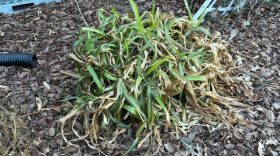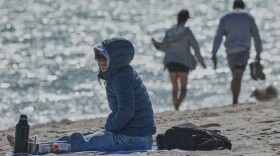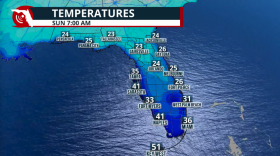-
Water levels in the Biscayne Aquifer have fallen dramatically... and there are still close to 4 months left of the dry season.
-
Bone-dry air is in place across much of Florida, and another cold front will push through early Saturday, which will reinforce the cold and dry air. Winds will also be strong, which could make any fires that ignite become erratic.
-
Two emergency shelters in Palm Beach County will be open Saturday night, beginning at 7 p.m., and remain open Sunday and Monday nights, in anticipation of frigid temperatures expected in South Florida.
-
The National Weather Service has issued an extreme cold watch for coastal Palm Beach County and a freeze watch for Miami-Dade and Broward counties.
-
Florida won't be getting hit with massive blankets of snow and ice like the rest of the U.S., but even frosty windshields and a few flurries can feel like Antarctica to people with permanent sandal tans.
-
This will not be the coldest air mass of the season, but it could be the coldest air mass felt in over a decade for some. Some flurries are also possible.
-
The National Weather Service is forecasting very cold temperatures across South Florida into the weekend. Local officials have activated their cold-weather emergency plans, including opening shelters.
-
The extensive winter storm brewing over the Rockies and Plains will impact millions over the weekend. Florida will be spared from winter precipitation, but not from the cold.
-
The big winter (and popular) topic is dusted off very early this season as frigid air plunges south next weekend. But what is the Polar Vortex, exactly?
-
During the colder months, the National Weather Service can issue a range of alerts across Florida, from Frost Advisories to Extreme Cold Warnings, to help protect people, pets, plants and property.
-
Due to the inclement weather, local governments have activated their cold weather emergency plans and opened shelters for people experiencing homelessness.
-
Much-welcomed rain continues to fall across South Florida, but we await a stronger cold front that will sweep over the state on Thursday and could possibly bring the coldest air mass of the season so far.













